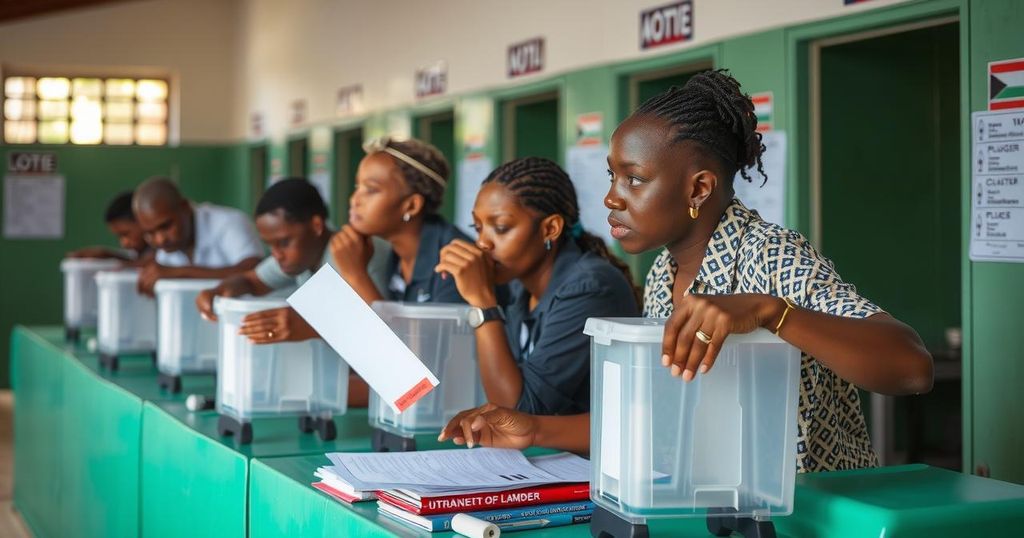Comoros Voters Head to Polls Amid Political Tensions and Accusations

Voters in Comoros are participating in parliamentary elections for the 33-seat assembly, a year after allegations of irregularities in President Azali Assoumani’s re-election. Approximately 338,000 are registered to vote. Assoumani’s opposition accuses him of authoritarianism and positioning his son for succession. Results will be available by Friday.
Voters in Comoros are set to elect members of the 33-seat parliament in a pivotal election, following the controversial re-election of President Azali Assoumani last year, which was characterized by allegations of significant electoral irregularities put forth by opposition factions. Despite these claims, officials representing the ruling party have firmly rejected such allegations and asserted the integrity of the electoral process. Polling commenced early on Sunday, with approximately 338,000 registered voters participating in the election,
marking the first parliamentary elections since January 2020.
The country’s Supreme Court has designated nearly 100 candidates to run for the parliamentary seats in a landscape where concerns over democratic principles continue to be voiced. Critics of President Assoumani accuse him of consolidating power and fostering authoritarianism, with particular suspicion surrounding his intentions to position his eldest son, Nour El-Fath, as his successor once his current term concludes in 2029. Assoumani has maintained control of the Comoros since seizing power via a coup in 1999, supplemented by three subsequent electoral victories.
In a notable development, President Assoumani awarded his son extensive new responsibilities in 2024, entrusting him with oversight of all government operations. Opposition parties, including Juwa, led by former President Ahmed Abdallah Sambi—currently serving a life sentence—have urged supporters to boycott the elections; however, some factions have dismissed this call for abstention. Hamidou Karihila, a candidate representing the opposition Hope of the Comoros party, expressed a belief that participation in the elections would further expose the weaknesses of the current regime, thereby facilitating its eventual decline. The results of this election are anticipated by Friday.
The context surrounding the parliamentary elections in Comoros involves significant political tension and dissatisfaction with President Azali Assoumani’s governance. Following his controversial re-election amidst accusations of electoral misconduct, the opposition has gained momentum in contesting the administration’s legitimacy. Issues such as the potential dynastic transfer of power, with Assoumani’s son being positioned for leadership, have further exacerbated the political climate, prompting divisions among opposition groups regarding electoral strategies. As the nation prepares for its first parliamentary elections in three years, the outcomes may significantly impact the future political landscape of the country.
In conclusion, the parliamentary elections in Comoros present a watershed moment as voters navigate a realm fraught with allegations of electoral malpractice and authoritarian governance. While some opposition factions advocate for a boycott, others seek to leverage the election process to underscore systemic flaws within the ruling regime. The outcome, expected by Friday, could set the stage for a critical political transition or reinforce the existing power structure under President Assoumani.
Original Source: www.naroomanewsonline.com.au








